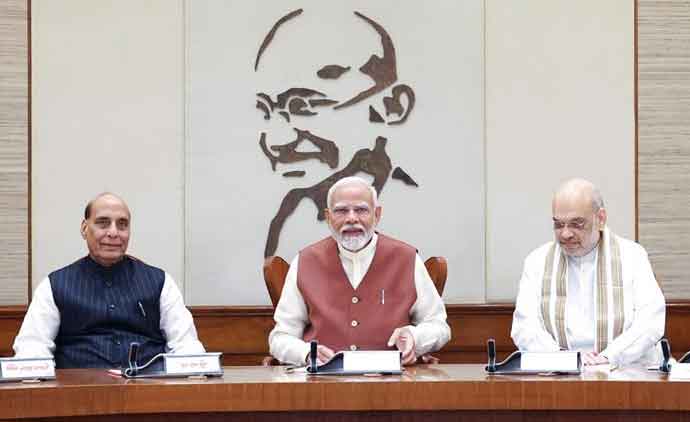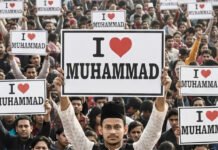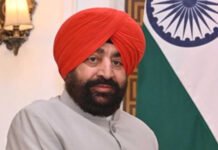BJP announces a fresh list of 15 candidates for the Jammu and Kashmir Assembly Elections, reaffirming its strategy by betting on Muslim candidates. Learn about the party’s approach and what it signifies for the region’s political landscape.
In a strategic move that’s raising eyebrows and sparking discussions across the political spectrum, the Bharatiya Janata Party (BJP) has announced a new list of 15 candidates for the upcoming Jammu and Kashmir Assembly Elections. This announcement is particularly noteworthy as the BJP has once again placed its bets on Muslim candidates, a decision that signals the party’s evolving approach to the region’s complex socio-political dynamics. With elections just around the corner, all eyes are on how these choices will play out in a region that has historically been a political hotspot.
In this article, we’ll take a closer look at the BJP’s candidate list, analyze the implications of their selections, and explore what this might mean for the future of Jammu and Kashmir’s political landscape.
## The New Candidate List: A Strategic Shift
The BJP’s decision to release a fresh list of 15 candidates for the Jammu and Kashmir Assembly Elections is a calculated move, reflecting the party’s adaptive strategy in a region where electoral outcomes can be unpredictable. This list is a departure from the earlier list of 44 candidates, which the party withdrew after some internal reconsideration. The new list is more streamlined, with a sharper focus on key constituencies, particularly those where Muslim candidates have been fielded.
### Why the Focus on Muslim Candidates?
The BJP’s decision to field Muslim candidates in Jammu and Kashmir is not just a tactical move; it’s a reflection of the party’s broader strategy to gain a foothold in a region where communal identities have often influenced voting patterns. By betting on Muslim candidates, the BJP is attempting to broaden its appeal and demonstrate that it is a party for all, not just for its traditional voter base.
This approach is particularly significant in Jammu and Kashmir, where the demographic and political landscape is markedly different from other parts of India. The region has a significant Muslim majority, and by nominating Muslim candidates, the BJP is signaling its intent to engage more deeply with this electorate.
## Breakdown of the Candidates: Who’s Who?
The BJP’s list of 15 candidates for the Jammu and Kashmir Assembly Elections includes a mix of seasoned politicians and fresh faces. Let’s take a closer look at some of the key candidates and the constituencies they’re contesting from.
### Candidates for the First Phase
- Engineer Syed Shaukat Gayur – Contesting from Pampore, a key constituency that has seen significant political activity in recent years.
- Arshid Bhat – Nominated from Rajpora, a constituency where local issues are expected to play a significant role.
- Javed Ahmad Qadri – Fielded in Shopian, a region with a history of political volatility.
- Mohammad Rafiq Wani – Contesting from Anantnag West, a crucial area for the BJP’s strategy in South Kashmir.
- Advocate Syed Wajahat – Another significant candidate from Anantnag, aiming to strengthen the party’s presence in the region.
- Shagun Parihar – Nominated from Kishtwar, a constituency where development issues are likely to dominate the campaign.
- Gajay Singh Rana – Contesting from Doda, a key constituency in the Chenab Valley region.
- Sofi Yousuf – Fielded in Srigufwara Bijbehara, another critical area in South Kashmir.
- Veer Saraf – Contesting from Shangus Anantnag, a constituency that could be a litmus test for the BJP’s appeal in the region.
- Tariq Keen – Nominated from Inderwal, an area where the BJP hopes to make significant inroads.
- Sunil Sharma – Contesting from Pader Nagseni, a constituency where development and infrastructure issues are likely to be key.
- Dilip Singh Parihar – Fielded in Bhaderwah, a constituency that has been a traditional stronghold for local parties.
- Salim Bhat – Nominated from Banihal, a constituency where the BJP is aiming to consolidate its position.
- Rakesh Thakur – Contesting from Ramban, a region with a history of electoral unpredictability.
- Shakti Raj Parihar – Fielded in Doda West, another crucial area for the BJP’s strategy in the region.
### What Happened to the Previous List?
The BJP’s earlier list of 44 candidates was withdrawn after some internal reconsideration, leading to the release of the current list of 15 candidates. This move indicates a more focused strategy, with the party zeroing in on key constituencies where it believes it has the best chance of success. The withdrawal of the previous list also suggests that the BJP is being careful not to spread its resources too thin and is instead concentrating on areas where it can make a significant impact.
## Election Phases: When and Where to Vote
The Jammu and Kashmir Assembly Elections will be held in three phases:
- First Phase: September 18, 2024
- Second Phase: September 25, 2024
- Third Phase: October 1, 2024
The counting of votes will take place on October 4, 2024.
### Key Constituencies to Watch
Several constituencies are expected to be key battlegrounds in these elections:
- Pampore: Engineer Syed Shaukat Gayur’s candidacy here is particularly significant, given the area’s historical and political importance.
- Anantnag: With both Mohammad Rafiq Wani and Syed Wajahat in the fray, this constituency is likely to be a focal point in the BJP’s strategy for South Kashmir.
- Shopian: Javed Ahmad Qadri’s nomination in this volatile region will be closely watched, as the BJP aims to make inroads in a traditionally difficult area.
## The Muslim Candidate Strategy: A Bold Gamble or a Masterstroke?
The BJP’s decision to field multiple Muslim candidates in Jammu and Kashmir is a bold move that could either pay off handsomely or backfire, depending on how the electorate responds. On one hand, this strategy could help the BJP broaden its appeal and challenge the narrative that it is a party primarily for Hindu voters. On the other hand, it could alienate the party’s traditional base, particularly if these candidates are seen as too conciliatory or out of step with the party’s core ideology.
### What Does This Mean for the BJP?
For the BJP, the stakes in Jammu and Kashmir are high. The party has made significant inroads in the region over the past few years, but it still faces significant challenges, particularly in the Muslim-majority areas of the Valley. By fielding Muslim candidates, the BJP is signaling that it is serious about engaging with all sections of society and is willing to take risks to achieve its goals.
### Potential Risks and Rewards
This strategy is not without its risks. If the BJP’s Muslim candidates fail to resonate with the electorate, the party could find itself losing ground in key constituencies. However, if these candidates are successful, the BJP could establish a stronger presence in the region, potentially reshaping the political landscape of Jammu and Kashmir for years to come.
## FAQs
Q1: Why did the BJP withdraw its previous list of 44 candidates?
A1: The BJP withdrew its previous list of 44 candidates after internal reconsideration. The party decided to release a more focused list of 15 candidates to concentrate on key constituencies where it believes it has the best chance of success.
Q2: Why is the BJP focusing on Muslim candidates in Jammu and Kashmir?
A2: The BJP is focusing on Muslim candidates in Jammu and Kashmir as part of a broader strategy to broaden its appeal in a region with a significant Muslim majority. By fielding Muslim candidates, the BJP aims to engage more deeply with this electorate and challenge the narrative that it is a party primarily for Hindu voters.
Q3: What are the key dates for the Jammu and Kashmir Assembly Elections?
A3: The elections will be held in three phases: September 18, September 25, and October 1, 2024. The counting of votes will take place on October 4, 2024.
Q4: What are the key constituencies to watch in these elections?
A4: Key constituencies to watch include Pampore, Anantnag, and Shopian, where the BJP has fielded significant candidates and is aiming to make inroads.
Q5: What are the potential risks of the BJP’s strategy in Jammu and Kashmir?
A5: The potential risks include alienating the party’s traditional base if the Muslim candidates are seen as too conciliatory or out of step with the party’s core ideology. There is also the risk that these candidates may not resonate with the electorate, leading to losses in key constituencies.
## Conclusion
The BJP’s latest candidate list for the Jammu and Kashmir Assembly Elections is a clear indication of the party’s evolving strategy in one of India’s most complex and politically sensitive regions. By betting on Muslim candidates, the BJP is making a bold statement about its intentions to broaden its appeal and engage with all sections of society. Whether this strategy will pay off remains to be seen, but it is undoubtedly a move that will have significant implications for the future of Jammu and Kashmir’s political landscape.
















